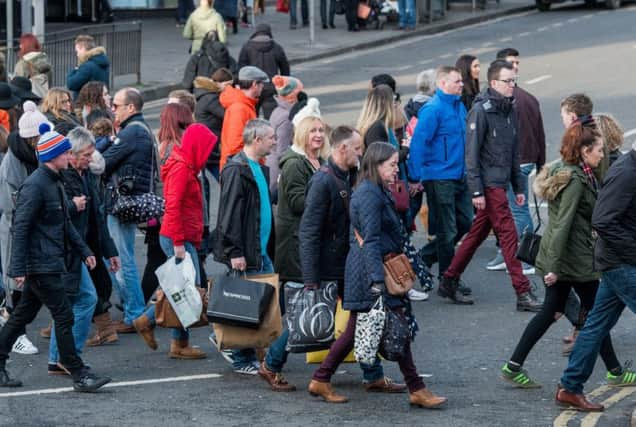Inflation headache as weaker pound takes its toll
This article contains affiliate links. We may earn a small commission on items purchased through this article, but that does not affect our editorial judgement.


The increase in spending on food and drink has driven essential spending to its strongest level of growth since February 2014, according to the latest Lloyds Bank Spending Power Report.
Meanwhile those who have a negative view of inflation has risen by 11 percentage points over the past 12 months to 49 per cent, while the most common expectation for consumer inflation (CPI) is that it will rise to 2 per cent over the course of next year.
Advertisement
Hide AdAdvertisement
Hide AdMany economists have predicted that inflation could touch 4 per cent or more next year as higher raw material costs and the impact of the weaker pound feed their way through to the cost of goods and services.
The Lloyds report reveals that, overall, essential spending grew by 1 per cent in November, the third consecutive month of positive growth.
The bank’s analysis of its own current account data also found that spending on groceries rose by 1.6 per cent year-on-year, marking its highest rate of growth since March last year.
Fuel expenditure, meanwhile, jumped by 5.9 per cent, its biggest year-on-year increase since February 2013 as prices at the pump continued to climb. The figures are in contrast with a year ago, when spending on petrol and diesel fell by 9.3 per cent.
Almost a third of people – some 31 per cent – saw themselves having less money in 12 months, once all household bills and essentials have been paid.
Lloyds Bank managing director Robin Bulloch said: “2016 has been a year of sustained growth in consumer outgoings, with the steady rise in expenditure on food and fuel driving a significant increase in overall essential spending. But while consumer confidence has remained resilient in the face of some seismic economic and political events, it seems the prospect of increased inflation is finally starting to weigh more heavily on people’s future expectations.
“Concern around the impact this will have on customers’ spending power next year is now becoming evident.”
More than 2,000 adults across the UK were surveyed online from 9 to 22 November for the report.
Advertisement
Hide AdAdvertisement
Hide AdIHS Global Insight economist Howard Archer said: “Consumers are highly likely to face markedly diminishing purchasing power over the coming months as inflation rises appreciably and earnings growth is limited.”
Richard Hyman, who has analysed the retail sector for more than three decades, added: “In 2016, on average more than 60 per cent of UK retailers have been on sale. I’ve never seen a market like this. Sales used to be used to clear stock. That’s a thing of the past. Now there is a permanent sale.
“This year will be a picnic compared to next year.”